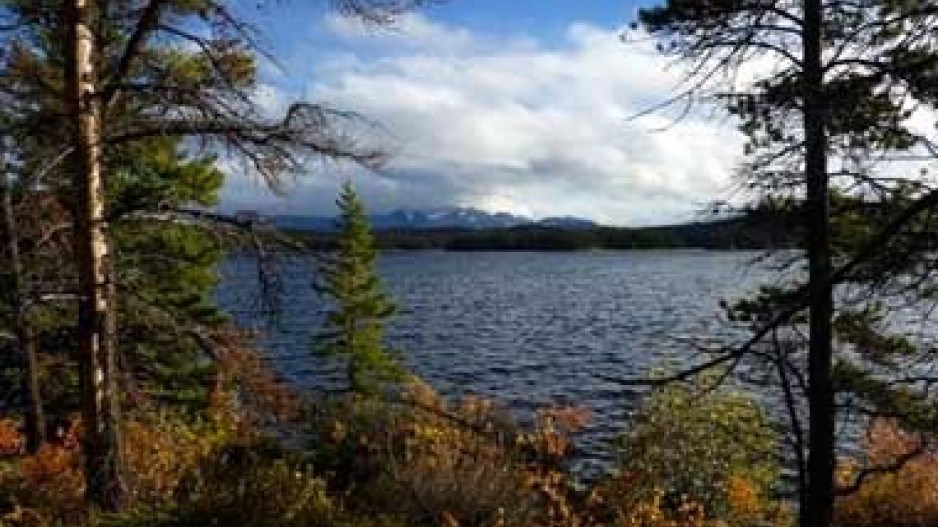The federal government has once again rejected the proposed New Prosperity copper and gold mine near Williams Lake, but the company behind the plan isn’t giving up.
Federal Environment Minister Leona Aglukkaq released a statement Wednesday evening indicating she has determined the plan by Taseko to build an open pit mine near Fish Lake would cause significant adverse environmental effects that cannot be mitigated and that the federal cabinet will not be giving the company a permit to proceed with construction.
“Obviously we’re terribly disappointed,” Taseko vice-president of corporate affairs Brian Battison said. “We fundamentally disagree with the decision made by the government of Canada.”
Taseko has already launched a judicial review of the Canadian Environment Assessment Agency (CEAA) panel, which ruled in October that the mine could cause significant harm to fish and fish habitat. Battison said the company is now contemplating a second judicial review of Aglukkaq’s decision.
“This is not the end,” he said. “Saying no to this project is just simply not acceptable to us.”
The company believes Natural Resources Canada erred in the evidence it provided to the CEAA panel regarding the seepage rate through an engineered soil liner the company has proposed for the tailings pond, but their protestations didn’t sway Aglukkaq.
The federal government rejected Taseko’s original Prosperity mine plan in 2010 over environmental concerns due to the planned draining of Fish Lake. The company’s revised plan came with a $300 million higher price tag and included a tailings facility located away from the lake.
Tsilhqot’in National Government chief Joe Alphonse said Wednesday’s decision is a win for his people who have been fighting against the mine for years. The Tsilhqot’in believe the mine will both harm the environment and limit their ability to conduct traditional activities in the area.
“I don’t think there can ever be a project there,” he said. “I think it’s time Canada maybe stepped back and declare that area sacred Tsilhqot’in ground and preserve it for the future.”
British Columbia mines minister Bill Bennett has been one of the most vocal supporters of the mine and made visits to Ottawa to make the case why it should be built. He told the federal cabinet that if they approved the project, the province was committed to providing the regulatory oversight to ensure the mine was built in an environmentally safe way.
But Bennett understands that it was difficult for Aglukkaq and her cabinet colleagues to go against the CEAA panel report.
“I think it’s very difficult for an environment minister to overrule a panel that has spent months studying a project and has come to a conclusion that the minister should not approve it,” he said. “But I don’t want to make it too easy on the federal government because I’m really disappointed personally.”
Battison said the decision is akin to the federal government “turning its back” on the people of the Cariboo and “outright rejecting the interests of the province of British Columbia.”
Since the CEAA panel released its environmental assessment report at the end of October, delegations on both sides of the mine debate have traveled to Ottawa to make their case to federal leaders. A group of business and political leaders from the Cariboo extolled the virtues of the project and the jobs it could bring the economically disadvantaged region. Tsilhqot’in leaders and representatives from local groups opposed to the mine made the case that the environmental risk is too great.
Cariboo-Prince George Conservative MP Dick Harris, another vocal supporter of the project, said he would wait until Thursday to comment on Aglukkaq and cabinet’s decision.
Alphonse said the fact that Aglukkaq accepted the conclusions in the panel’s report despite the political pressure she faced has restored his faith in the system.
Skeena Bulkley-Valley NDP MP Nathan Cullen said Aglukkaq made the right decision in light of what he described as “absolutely overwhelming” evidence against the mine.
“My first thought was for the First Nations who have fought long to protect their community and the environment and who have faced a huge amount of high-priced lobbying from the company and outright aggression from the Christy Clark government,” he said. “I think this is a win for the good guys.”
With the federal government’s decision made, attention now shifts to the federal court where a judicial review is already underway. The company is asking the court to rule that the CEAA panel made its decision based on faulty evidence and if Taseko wins it could force the panel to revisit its conclusions.
“This is a tremendous asset that belongs to the people of British Columbia, resources are constitutionally granted to the province,” Battison said. “It’s up to the province to decide whether and if those resources are to be used and how they might be used to benefit the people of British Columbia and the federal government is standing in the way of that.”




